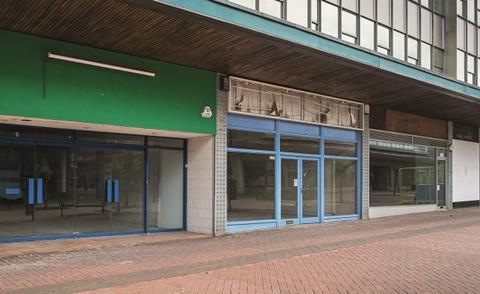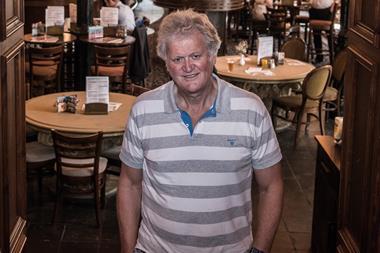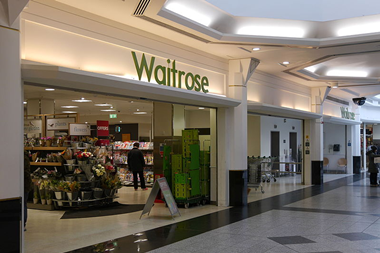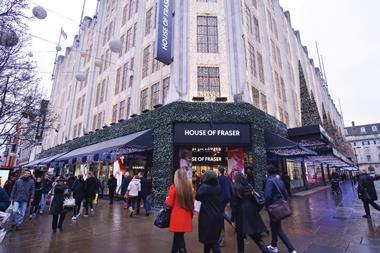The question of how to rescue the UK’s struggling high streets is not a new one and has been the subject of countless reviews, reports and taskforces in recent years.

But given the raft of recent company voluntary arrangements (CVAs), Bill Grimsey – the former chief executive of Iceland and Focus, who penned an independent report into high streets in 2013 – has decided to revisit the subject in a new paper published yesterday. The move followed the publication days earlier of a joint report by retail industry body Revo and Savills suggesting that high streets could reverse their fortunes by increasing their leisure offer.
So how much has the situation deteriorated, are the reports saying anything new – and what prospect is there of their recommendations being implemented?
Grimsey is as unequivocal as ever about the outlook. “When we published our 2013 review, we warned that a crisis was unfolding on the high street and bold action was needed,” says The Grimsey Review 2. “Thousands of retail jobs have been lost since – and the response by politicians has been abject. Unless drastic action is taken, things are going to get worse.”
Looking at insolvencies alone, there has been some improvement. The Grimsey report shows there were 11,858 retail insolvencies in the five years to 2013 and 7,640 in the five years since. However, there was an 8% rise in 2017 and the report says 2018 “may well show a further increase” in the wake of the likes of Toys R Us and Maplin falling into administration this year.
“Grimsey argues that retailers have not adapted to the changing retail climate and goes so far as to say that the UK high street has become “an enemy to innovation”. He adds that their growth has been stunted by the financial burden of business rates – a system Grimsey calls “unfair, archaic and out of control”. Retailers should be taxed in a different way, he argues. “An immediate independent review should look to replace it with either a land/area/property value or sales tax,” says the report.
Ed Cooke, chief executive of Revo, agrees business rates are a major problem. “If there is one thing we should all be talking about, it is business rates,” he says. “Ask any high-street shopkeeper and they will say it is an inhibitor to their business succeeding.”
However, given that previous calls for reform have fallen on deaf ears, most experts believe the chances of the rates system changing any time soon are slim. “Unless government is provided with an alternative, they are not going to change the system,” says Tom Whittington, director, commercial research, at Savills.
Leisure holds the key
In its report, Revo says the leisure sector will be key to improving the health of high streets. According to the research, 80% of UK leisure space is located on high streets and spending in areas such as food and fitness is rising. Much of the space vacated by retailers could be taken by leisure and food operators, says the report, which attributes the problems experienced by casual-dining operators such as Byron and Jamie’s Italian to over-expansion on their part rather than wider issues in the market.
“While there has been a slowdown among global casual-dining brands, we are seeing quite a lot of growth among independents,” says Whittington.
Find out more - Rental insanity spells trouble for restaurant chains
Cooke adds that competitive socialising – activities such as mini golf and table tennis – remains popular and could also absorb some of the vacant space. But he acknowledges that leisure would not on its own be able to solve the high-street problem and says that other changes of use in town centres should also be considered. “We need to look at more different uses, for example housing of all tenures and flexible workspace,” Cooke says.
The Grimsey review also argues that it should be made easier to convert retail buildings to other uses. It makes 25 recommendations in all, which also include the creation of a Town Centre Commission to develop a 20-year strategy for local high streets and the enhancement of local council compulsory purchase order (CPO) powers.
Whittington agrees that councils should have more CPS powers “so buildings can be repurposed to create new footfall, new vitality in the town centre and increased demand for the remaining retail and leisure”.

There seems to be a fair amount of consensus in the two reports about what needs to be done. Whether that translates into action remains to be seen.
Melanie Leech, chief executive of British Property Federation, also endorses the Grimsey report and says: “This is a commendable report that deserves serious attention by policymakers and politicians. A group of experts have said we need to reinvent our town centres and had the gumption to set out how we might go about it. Many of our towns are going to need significant adaptation.
”The report rehearses well the powers, partnerships, and policies that will help. It recognises the critical role of local authorities as placemakers – and it also recognises that you cannot have a serious conversation about the challenges faced by high streets, without considering the impact of business rates.”
There seems to be plenty of consensus on what needs to be done to save the high street – but whether the government will take up Grimsey’s suggestions this time around is far less certain.
Source






























No comments yet